The views expressed in our content reflect individual perspectives and do not represent the authoritative views of the Baha'i Faith.
The other day I bought a few items at a store, and paid with a $20 bill. The cashier gave me my change, which I stuffed into my pocket without counting. I thanked her and left, but when I got to the car I realized that she had given me too much change—about $35. Apparently, I figured, she had mistaken a $20 bill for a $1 bill.
Has this ever happened to you? What did you do?
When it does happen, we all probably think about keeping that unexpected windfall of excess change at first. But then, usually, our inner moral sense kicks in, and we start to ask ourselves “What if that cashier comes up short in her register, and she has to make it up out of her own pocket? Or what if her employer accuses her of theft? What if she loses her job?”
In situations like this, those inner moral considerations occur to almost everyone. Philosophers and theologians have known, for many centuries, that unlike any other creature, normal people have a seemingly built-in conscience, an inner moral compass. That morality often prompts us to ignore our own best interests and act selflessly and morally in the interests of others. This spiritual facility, unique to humans, has caused many philosophers to conclude that the fact of our conscience reveals the existence of a greater moral law—and therefore a transcendent Lawgiver.
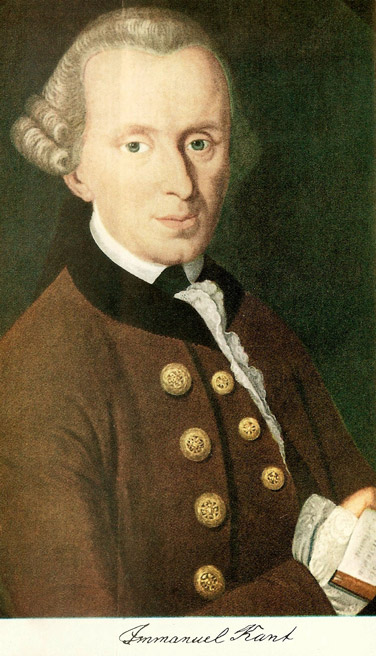
This thoughtful and subtle philosophical argument for the existence of God was first put forth by the great philosopher Immanuel Kant, who wrote that humanity’s ultimate goal involves the achievement of perfect happiness, which comes from virtue. Kant called this the categorical imperative, the ultimate commandment of our internal reasoning powers in the service of a moral, virtuous life. Because this moral facility exists universally among humans, Kant reasoned, an afterlife must exist; and therefore God must also exist. Kant’s logic path goes something like this:
Humans have natural moral impulses
That morality could only come from a higher source of moral good
Therefore God exists.
Kant’s moral universalism has had an enormous impact on our modern humanitarian, political, social and legal concepts of equality, fairness and human rights. Other philosophers have followed and expanded Kant’s reasoning, concluding that the existence of the human conscience means that objective moral truths exist—and that the ultimate source of those truths must be God.
Several modern philosophers have put the same idea a little differently: whatever our conscience and morality oblige us to do must be possible–and achieving the perfect good of both happiness and moral virtue only becomes possible if a natural moral order exists.
In the Baha’i teachings, you’ll find this logical moral argument for the existence of a Supreme Being in many different places. The main thrust of the Baha’i message—that reality is fundamentally spiritual in nature–views the individual as a spiritual being, a “rational soul”, with innate, inherent and God-given moral and intellectual capacities:
If we review history, we will observe that human advancement has been greatest in the development of material virtues. Civilization is the sign and evidence of this progression. Throughout the world, material civilization has attained truly wonderful heights and degrees of efficiency — that is to say, the outward powers and virtues of man have greatly developed, but the inner and ideal virtues have been correspondingly delayed and neglected. It is now the time in the history of the world for us to strive and give an impetus to the advancement and development of inner forces — that is to say, we must arise to service in the world of morality, for human morals are in need of readjustment. We must also render service to the world of intellectuality in order that the minds of men may increase in power and become keener in perception, assisting the intellect of man to attain its supremacy so that the ideal virtues may appear. Before a step is taken in this direction we must be able to prove Divinity from the standpoint of reason so that no doubt or objection may remain for the rationalist. Afterward, we must be able to prove the existence of the bounty of God — that the divine bounty encompasses humanity and that it is transcendental. Furthermore, we must demonstrate that the spirit of man is immortal, that it is not subject to disintegration and that it comprises the virtues of humanity.
…People speak of Divinity, but the ideas and beliefs they have of Divinity are, in reality, superstition. Divinity is the effulgence of the Sun of Reality, the manifestation of spiritual virtues and ideal powers. The intellectual proofs of Divinity are based upon observation and evidence which constitute decisive argument, logically proving the reality of Divinity, the effulgence of mercy, the certainty of inspiration and immortality of the spirit. This is, in reality, the science of Divinity. Divinity is not what is set forth in dogmas and sermons of the church. Ordinarily when the word Divinity is mentioned, it is associated in the minds of the hearers with certain formulas and doctrines, whereas it essentially means the wisdom and knowledge of God, the effulgence of the Sun of Truth, the revelation of reality and divine philosophy. – Abdu’l-Baha, The Promulgation of Universal Peace, pp. 325-326.
So what did I do with my excess change? I checked in with my own conscience, then took it back to the cashier in the store. She looked at me with gratitude, told me that I’d saved her considerable grief at work, came out from behind her counter and gave me a hug.
You May Also Like
Comments



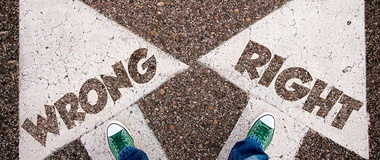


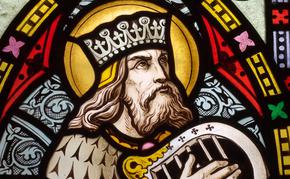






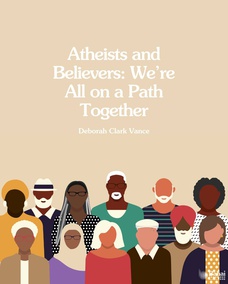
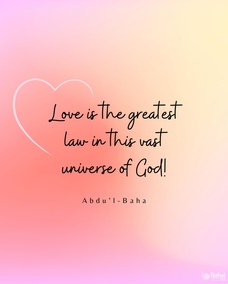
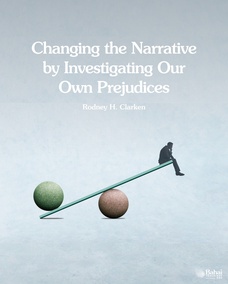

In the easy to understand format.
As a real fact, there are moral and ethical laws of behaviour among people.
Firstly these laws are absolute and objective.
And secondly: these laws are laws of behaviour which show us (people) how to behave, so these are laws of behaviour for rational creatures.
The fact that these laws are rules of behaviour for rational creatures and that they address to our mind means that they are established by a rational Creature, Individual.
The fact that these laws are objective and ...absolute for all people means that these are laws of nature, laws of universe arrangement.
But then who could invent such laws of behaviour that are objective and absolute and that are the part of universe arrangement? – Only the Highest Rational Being, a certain All-powerful Creature who invented the whole world, the Universe and all people.
To say in other words – the God Creator!
http://en.apologet.net/the-moral-argument-a-modern-approach/
When I was young, I was a naturalist. I though that humans and nature were just naturally good. When I went to college, I learned that there had been babies that had been either abandoned in the wilderness, or their parents had passed away leaving the babies. The babies had then been raised by monkeys. When the babies grew up, they exhibited the exact same characteristics as the monkeys did and none of human. ie. They did NOT grow up to be smart, loving and intelligent people.
This proved ...that knowledge was NOT inherently within the child. That human's were not born with knowledge. If humans were not born with knowledge, then it must come from outside ourselves. This proved to me that the source must be God.
The knowledge of God flows as a spring of knowledge through the chosen Prophets or Manifestations of God. They are the Divine educators of humanity. Without this Divine knowledge, humanity would remain ignorant, and bereft of all good human qualities. We are essentially, a mirror, when polished, reflecting the Divine attributes of God. Randy Focht.